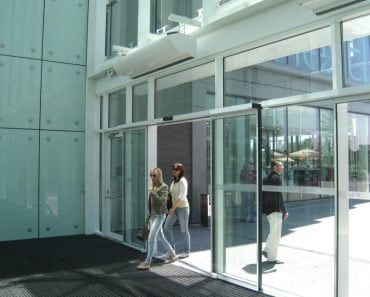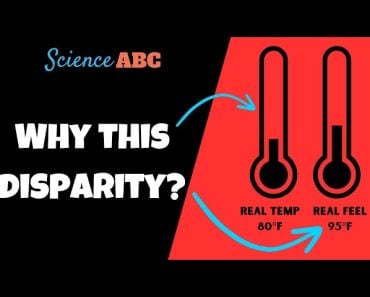Table of Contents (click to expand)
It generally requires more energy to heat a home than to cool one for a number of reasons, including average temperature ranges, insulation issues, and the nature of cooling a space versus warming the air.
Most people will agree that paying bills is a dreadful part of life, particularly if you live in a cold region and are paying your heating bill in the dead of winter. While people who experience warmer climes may also get hit with a large air-condition bill in the summer, it is less costly, on average, to cool a home than to heat one. This discrepancy in cost has mystified people for decades, even though both warming and cooling technologies have advanced and become more energy-efficient.

Furthermore, natural gas is the most popular fuel for heating systems, which is cheaper than electricity and other fuel sources, so many people would assume that heating systems would be less expensive, yet that isn’t the case. So… why does it take more energy to keep your house warm than it does to keep your house cool?
Recommended Video for you:
Heating And Air Conditioning Systems
Before we dive into the nuances of heating vs cooling, we must briefly review the details of both heating and cooling systems. To begin with, heating systems include furnaces, boilers, heat pumps, space heaters, stoves and fireplaces, among others, but this article will focus on furnaces, which is the most common variety found in North America and Europe. A common forced-air furnace ignites the natural gas or propane in the burner, which then warm a heat exchanger attached to a flue. The heated exhaust is then blown out through the vents of the house, effectively warming all the rooms. Even when a heating system is using natural gas, it still requires a significant energy input to create and maintain that elevated temperature.

Air conditioning systems are primarily driven by electricity, which is a less efficient and more costly form of fuel. Rather than using natural gas directly, the gas must be converted into electricity and then used to power the air-conditioning system, a conversion that results in waste. This results in an even greater cost to the consumer. The air conditioner then draws warm air outside the house, where its heat can be dissipated, before returning to the house in a newly cooled state. While there are variations in design and functionality for both warming and cooling systems, these are the fundamental processes involved in both.
Temperature Variations
Given what we know about how air conditioners and heaters work, and what types of fuel they use, it still may be confusing as to why it costs notably more to warm a house than cool it. However, to get an answer for that, we need to look at the temperature change that is demanded by such systems.
For example, if you live in Washington DC, the average high temperature in the summer is about 87 degrees Fahrenheit. During the winter, the average low temperature is roughly 28 degrees Fahrenheit. Everyone is different, but people generally like to keep their house around 74 degrees Fahrenheit, a number that falls squarely in the middle of “room temperature”. This means that, to achieve 74 degrees Fahrenheit in the summer, the air conditioning must affect an average of 13 degrees of temperature change for comfort. During the winter, the heating system must raise the temperature by an average of 46 degrees Fahrenheit to achieve a comfortable temperature. Clearly, far more energy must be expended to overcome a 46-degree difference than a 13-degree difference.
As an example at the extreme, Las Vegas, Nevada has an average summer high of about 104 degrees Fahrenheit! The average winter low of roughly 30 degrees Fahrenheit. The temperature difference for an air conditioner is about 30 degrees Fahrenheit during the summer, but the temperature difference for a heater is still greater at 45 degrees. In northern areas, sometimes people never need to turn an air conditioner on, but they will have to heat their home for 8-9 months of the year!
Generally speaking, inhabited areas get much colder than hotter. This means that heating systems will have to work harder and burn more fuel to maintain a comfortable temperature during the winter. Air-conditioning systems may need to work hard in the summer in some places, and may use a less efficient form of fuel, but it still doesn’t cost as much as the wintertime heating!
Moving Vs Heating
The other fundamental difference between heating and cooling the home is the process by which they are done. Heating a space requires a machine to make heat, which requires a good amount of energy. Basically, you cannot get warm air from the environment, so you must create it. Turning gas into electric energy, and then turning electric energy into heat energy (for those heating systems using electric power), is a very resource-heavy process.

Cooling a space, on the other hand, requires a machine to move the heat, by taking it out of the house, and replacing it with cool air in an efficient cycle. Some “heat pumps” perform a similar process to heat a house, but this approach is not widely used, as it doesn’t perform effectively in very cold weather.
Within the HVAC industry, air-conditioning systems have also made greater strides in terms of energy efficiency than heating systems, due to the basic nature of their function. Heating systems can be greatly benefited by effective insulation throughout a home, such as double-glazed windows, insulation in the roof, walls and attic, and tight seals on all the doors and gaps. Even with a tightly sealed home, heat is inevitably lost, requiring more energy to re-elevate the temperature. On the other hand, when you open a door on a hot day while the air conditioning is on, the AC system can stabilize the temperature more quickly, and with less energetic effort.
A Final Word
Depending on where you live, your heating and cooling bills may generate very different levels of financial stress. However, on average, heating bills will empty your wallet faster than air-conditioning costs. Based on the need to overcome colder temperatures in populated areas, and the physical differences of warming air vs. moving it, heating systems simply demand more energy! Even if you only heat a space when you’re using it, and ensure that it is properly insulated, when all the coins are counted, your winter bills will likely still be higher than those you receive in the summer!
References (click to expand)
- Modera, M. (1993, January). Characterizing the performance of residential air distribution systems. Energy and Buildings. Elsevier BV.
- Mcquiston F. C., Parker J. D.,& Spitler J. D. (2004). Heating, Ventilating, and Air Conditioning: Analysis and Design. John Wiley & Sons
- Dubin, J. A., Miedema, A. K., & Chandran, R. V. (1986). Price Effects of Energy-Efficient Technologies: A Study of Residential Demand for Heating and Cooling. The RAND Journal of Economics. Wiley.













